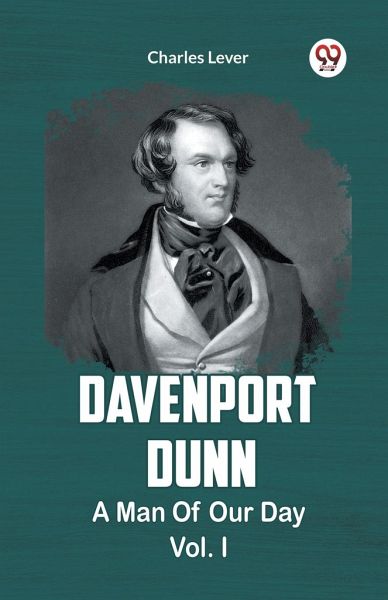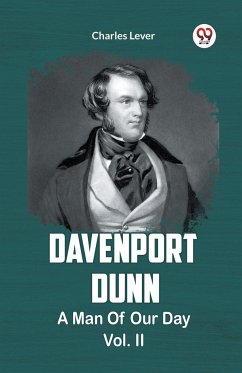
Davenport Dunn A Man Of Our Day Vol. I

PAYBACK Punkte
0 °P sammeln!
Charles Lever's "Davenport Dunn: A Man of Our Day, Vol. I" tells a compelling story of ambition, politics, and cultural complexities in nineteenth-century England. The tale revolves around the charismatic and crafty protagonist, Davenport Dunn, a guy of superb intelligence and ingenuity. Lever gives a shiny portrayal of Dunn's climb to political and social prominence, capturing the heart of the generation's political maneuvering and personal pursuits. As Dunn navigates the tricky internet of political power and impact, the story digs into his character's complexity, displaying his motivations,...
Charles Lever's "Davenport Dunn: A Man of Our Day, Vol. I" tells a compelling story of ambition, politics, and cultural complexities in nineteenth-century England. The tale revolves around the charismatic and crafty protagonist, Davenport Dunn, a guy of superb intelligence and ingenuity. Lever gives a shiny portrayal of Dunn's climb to political and social prominence, capturing the heart of the generation's political maneuvering and personal pursuits. As Dunn navigates the tricky internet of political power and impact, the story digs into his character's complexity, displaying his motivations, skills, and weaknesses. The novel affords a gripping examination of the political scene of the time, supplying insights into the societal conventions and issues confronting people searching for for success and reputation. Charles Lever tells a tale this is each socially perceptive and pleasing, using properly-fashioned characters and a masterful storyline. "Davenport Dunn" not most effective reflects modern culture, but additionally gives undying truths into human nature, ambition, and the quest of electricity. This first volume units the degree for a riveting voyage thru Davenport Dunn's existence and the intricate tapestry of nineteenth-century English society.














